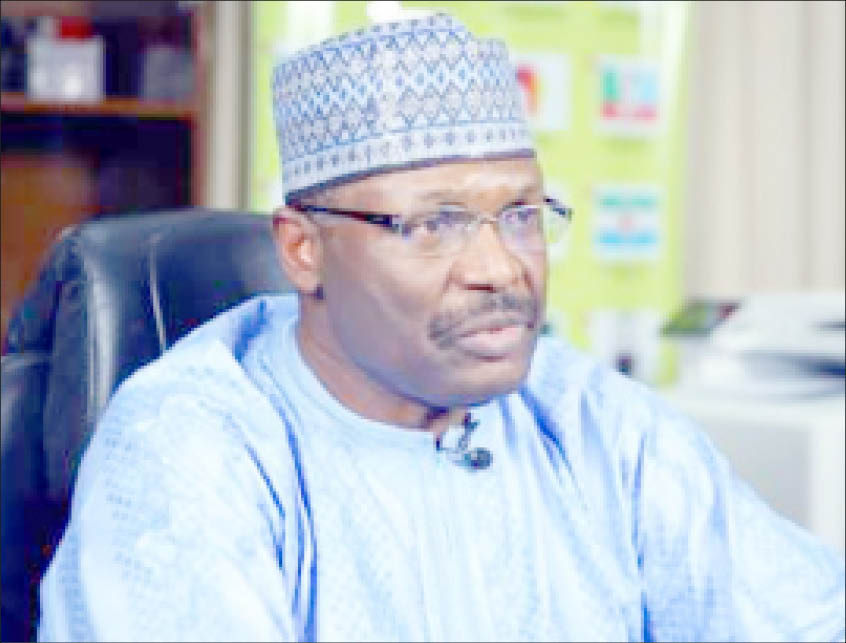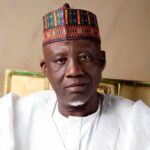Despite mounting criticisms over off-season elections, development from the ongoing adjudication of electoral disputes across states have indicated that more states may be drifting into this circle, Daily Trust Saturday reports.
Commentaries on the possibility of Kano, Plateau and Zamfara states drifting into the league of states in off-season elections if the recent judgements of the Court of Appeal are eventually upheld by the Supreme Court have continued to dominate discussions across the country.
But some actors and key players in the country’s polity have emphasised the need to de-market off-season polls by putting a stop to all irregularities that trigger it. Stakeholders are particularly worried that if the trend is not checked, the presidential election might be affected someday.
Speaking on the subject matter after casting his vote during the November 11 governorship election in Bayelsa State, former President Goodluck Jonathan asked the National Assembly to enact laws that would put an end to the trend.
Forex crisis: Declare Cashless Policy, Investment Analyst tells FG
FG releases 150 inmates in Kano, 182 in Gombe
He said, “I get worried about the issue of off-season elections. I will use this unique opportunity to plead with the National Assembly that we need to block these off-season elections. It is very odd. It is not global best practice. If we continue with this trend of off-season elections, based on the interpretation of our laws by our judicial officers, it will come to a time that our presidential election in Nigeria may be off-season.
“It almost happened in 2007 when I contested as a running mate to the late President Yar’adua. The seven justices that presided over the case, three of them held that the election be annulled, four of them sustained; and that is why we stayed. If one had crossed over, by now the presidential election would have been off-season, and it is not the best for a country.
“We need to stop that, and where possible, these states too can be migrated back to fall in line with others. And the National Assembly can do that. That is my message for the National Assembly and Nigerians today.”
Similarly, an elder statesman and former presidential candidate, Chief Chekwas Okorie, told Daily Trust Saturday in a telephone chat that though the 1999 constitution provides that a governor’s tenure starts from the day he took oath of office, the issue of off-season polls should be discouraged.
Okorie, who also asked the National Assembly to wade into the matter, called for efforts at ensuring that election matters are resolved before winners are sworn in on May 29, stressing that the Independent National Electoral Commission (INEC) must also wake up and do a proper job to nip the trend in the bud.
He said, “There is no doubt that this whole thing has caused so much confusion, including creating problems for even the electoral body because the same thing does not apply to people in the legislature.
“My suggestion is that the National Assembly should bring back our elections to a uniform four-year tenure that would all start at the same time. Secondly, we need to ensure that we have all election matters resolved before the swearing in ceremony. Since our new government starts on May 29, we must design our elections and settlement of disputes, giving all the timeline in a manner that all would be done before May 29.
“But the thing is that the number of election litigations we have are indictment on the INEC. If the electoral body is doing a proper job, starting from monitoring primaries, political parties and all the processes, the issue of Plateau wouldn’t have occurred. This INEC cannot deepen democracy in Nigeria.”
Also, a former chairman of the Inter-Party Advisory Council (IPAC), Dr Yunusa Tanko, expressed worry over the trend. He said, “INEC did not conduct elections properly and it is the judiciary that is now declaring winners. This is shameful. INEC has failed to improve on its previous performance.”
Schedule of off-season polls in 8 states
Already, Nigeria has off-season governorship elections in eight states. They are Anambra, Ondo, Ekiti, Osun, Kogi, Bayelsa, Edo and Imo. If Kano, Plateau and Zamfara eventually join, Nigeria will be having off-season elections in 11 states though at different times.
Daily Trust Saturday reports that since the return to democracy in 1999 after many years of military rule, general elections have been held in 1999, 2003, 2007, 2011, 2015, 2019 and 2023, while the May 29 handing over date has been sacrosanct.
But pundits said the trend of electoral fraud, violence, rigging of elections and intimidation of voters have gained traction over the years despite campaigns against them, thus, leading to litigations and consequent sack of some elected officers, including governors.
The development, analysts said had created scenarios where reruns are declared in some areas by the courts, while in some cases, elected officers are removed because their political parties failed to conduct primary elections or such elections were not monitored by the INEC or they were imposed by power brokers in their parties.
Already, INEC has announced that the off-season governorship election in Edo State would be held on September 21, 2024 while that of Ondo would be conducted on November 16, 2024.
The commission had in 2021 conducted off-season governorship election in Anambra State, where a former governor of the Central Bank of Nigeria (CBN), Prof Charles Soludo, emerged winner. The commission had equally conducted off-season elections in Ekiti and Osun states on June 18, 2022 and July 16, 2022 respectively. This means that these states would be having their next gubernatorial elections in 2025 and 2026 before the next general elections scheduled for 2027.
How it started
Specifically, an off-season election in Nigeria was first experienced in Anambra State in 2006 when the presidential candidate of the Labour Party (LP) in the 2023 poll, Peter Obi, who contested the Anambra governorship election on the platform of the All Progressives Grand Alliance (APGA) was declared winner of the election by the apex court and sworn in as governor.
Obi emerged governor after contesting the result of the 2003 election that brought Dr Chris Ngige of the Peoples Democratic Party (PDP) into office in court. Since then, the governorship election in Anambra has been held three years after the general election.
After Anambra, other states followed in 2007 when election tribunals upturned several results in Bayelsa and Kogi, and elections were later held that year. Also, in Edo, Ondo, Ekiti and Osun, the winning candidates from different parties started their terms following court rulings in 2007.
Imo State is so far the latest that joined the league in 2019 after the apex court judgement which nullified the election of Emeka Ihedioha of the PDP and declared Hope Uzodinma of the All Progressives Congress (APC) as winner.
Kano, Plateau, Zamfara next states to watch
All eyes are now on Kano, Plateau and Zamfara states as the Court of Appeal recently sacked governors of the three states in separate judgements.
The Court of Appeal sitting in Abuja had sacked Governor Abba Kabir Yusuf of Kano State. The panel upheld the verdict of the tribunal led by Justice Oluyemi Akintan Osadebay that sacked Yusuf on September 20, 2023.
The lower court had declared 165,663 votes of Yusuf, who contested under the New Nigerian Peoples Party (NNPP), invalid on the grounds that they were not signed or stamped by INEC.
The governor’s votes were then reduced to 853,939 while those of Nasir Ganuwa, his APC rival remained at 890,705. Yusuf had rejected the tribunal verdict, which he described as “unfair” and “a miscarriage of justice,” and headed to the Appeal Court.
But in its ruling, the Appeal Court held that Yusuf was not eligible to contest the election because he was not a member of the NNPP. He, however, announced that he was heading to the Supreme Court.
Criticisms had also trailed the sack of Governor Caleb Mutfwang of Plateau State by the appellate court, triggering reactions that the ruling APC is at work to run a one-party system in Nigeria.
The sack of Mutfwang was the third experience of the opposition in a space of four days. The Appeal Court had earlier sacked Governor Dauda Lawal of Zamfara State, who is of the PDP, declaring that the governorship election held on March 18 was inconclusive in the state.
These recent court rulings leading to the sack of the three opposition governors had gotten Nigerians talking as they pointed to the APC as the mastermind. But the ruling party has consistently denied the claims.
Mutfwang of the PDP had got 525,299 votes while his APC challenger, Nentawe Goshwe polled 481,370 votes in the Plateau governorship election. Goshwe challenged his victory at the tribunal, saying that Mutfwang did not comply with the Electoral Act as he was not validly nominated and sponsored by his party.
The panel dismissed the petition for lack of merit, but Goshwe headed to the appellate court. In its judgement, the Appeal Court headed by Justice Elfrieda Williams-Dawodu sacked Mutfwang for not being validly sponsored by the PDP for the Match 18 election.
Pundits said if the sacked governors’ appeals at the Supreme Court are dismissed, candidates of the APC, which were declared winners, would start a fresh tenure, thus, leading to a change in INEC timetable for governorship elections in the states. This would consequently lead to a change of time in the conduct of the elections in the affected states, thus paving the way for off-season polls.
Off-season polls, product of democracy – Nkire
But despite its criticism, a member of the APC National Caucus, Chief Sam Nkire, told Daily Trust Saturday in a chat that the phenomenon of off-season polls being experienced in Nigeria was a product of democracy.
He said, “I don’t see anything wrong with off-season elections. They are a product of democracy; and the number of states that may go for off-season elections doesn’t matter. If a governor cheated to win in an election he shouldn’t be allowed to continue in office to avoid off-season elections, he should face the wrath of the law. I don’t think there should be a legal framework to stop off-season elections.”

 Join Daily Trust WhatsApp Community For Quick Access To News and Happenings Around You.
Join Daily Trust WhatsApp Community For Quick Access To News and Happenings Around You.


